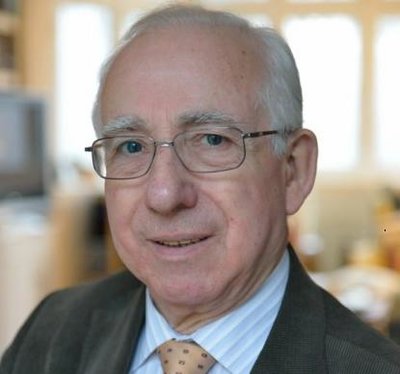Background
Why has W-BAD been made necessary?
INTRODUCTION
After more than 55 years, despite decades of campaigning by dedicated experts together with all of the evidence presented about the risks, benzodiazepines are still heavily prescribed worldwide, and are now accompanied by other high risk psychotropic drugs, such as anti-depressants.
BACKGROUND
Benzodiazepine drugs were marketed in the 1960/70s as Librium, Valium, and Ativan. These set of drugs were only trialled for short term usage by the drug companies and it was never intended that innocent patients should become dependent on them for months and years (some people have been dependent on them for nearly 50 years).
A COINCIDENCE?
As stated by the All Party Parliamentary Group on Prescribed Drug Dependence: “There were over 1.1 million disability claimants for mental disorders in the UK in 2014, a figure which has doubled over the past twenty years. A similar increase can be seen across the developed world, in countries such as Australia, Iceland, the United States, New Zealand and Sweden. Wherever disability rates are rising we have also seen large increases in psychiatric drug prescriptions. Over the past 25 years, prescriptions for antidepressants have risen by 500% to almost 60m in England alone, alongside a surge in prescriptions for other psychiatric drugs.
The fact that this is being observed in different countries (with dissimilar health systems, levels of inequality, welfare provision etc.) obliges us to consider what role the medications themselves could be playing in increasing mental illness disability. In particular, how should we respond to research linking long-term use of psychiatric drugs with worse outcomes? And what are the costs of this, both to public health and the public purse?”
EXPERT WARNING
As far back as 1978, Prof. Malcolm Lader called these drugs “the opium of the masses” because of the very high prescribing rates. In 1981 he warned that in the context of tranquilliser addiction “there is an epidemic in the making” and in 1988 he stated that this was the biggest medically-induced problem of the late 20th Century.
STATISTICS & TRENDS
Despite the above and other expert warnings, the 2010 INCB Report (pg 32) shows that there was actually a general global increase in the previous decade.
A research paper published in 2016 by the American Journal of Public Health shows that, between 1996 and 2013, benzodiazepine prescriptions and overdose mortality have increased considerably in the US (See CNN report).
Statistics show that Japan has the highest consumption rate in the world. However, benzodiazepines are not included at medical school training for doctors who are largely ignorant on the subject. They prescribe excess amounts, over prolonged periods and poly-prescribe, which is resulting in grave suffering for many unsuspecting victims with absolutely no specialised facilities available to help them.
The 2014 Hospital Admissions Drug Poisoning Report, published by the NHS in England, has again shown that prescription drugs are causing people / society more harm than illegal drugs.
The following increases were reported in England from 2013 to 2014. Heroin: 1220 → 2440, Cocaine: 686 → 2244, Benzodiazepines: 7515 → 15,027, Z drugs (similar to benzodiazepines): 4723 → 11,054, Antidepressants: 14,558 → 28,393.
It is clearly evident that the total for heroin and cocaine combined (4684) is dwarfed yet again by prescription drugs (benzodiazepines, z drugs and antidepressants) with a combined total of 54,474 admissions. In addition, in 2014, 776 children were admitted for benzodiazepines and z drugs and 2454 children admitted for antidepressants.
These trends reflect an ever growing worldwide pandemic, which is having devastating consequences on humanity and society; not to mention the effects on the environment through waste water and from drug manufacturing pollutants.
THE POLITICS
(British example of a global problem)
The All Party Parliamentary Group on Involuntary Tranquilliser Addiction (APPGITA) was set up in The House of Commons in 2008 by the late Hon. Jim Dobbin MP (Chair), his widow Pat Dobbin and campaigner Michael Behan.
It was supported by dedicated campaigners: John Perrott and Barry Haslam, together with experts, including Prof. Ashton and Prof. David Healy, who worked tirelessly from 2009 to 2014 to bring to the government’s attention the estimated 1.5 million patients who were being prescribed addictive benzodiazepine and z drug tranquillisers by their doctors.
An already existing Parliamentary group for drug misuse had produced a report prior to its creation, however, this report was on drug ‘misuse’ and APPGITA was formed because the issue was not a question of drug ‘misuse’ but of patients becoming dependent, through no fault of their own, as a result of following their doctor’s instructions.
APPGITA’s objectives were the creation of national dedicated withdrawal services to help patients come off these drugs and to establish mandatory maximum prescribing periods of no more than 4 weeks, because doctors have been ignoring previous guidelines, i.e. the Committee on Safety of Medicines' (1988) 2-4 week prescribing guidelines, and it was this ignoring of the guidelines that caused the drug dependent population in the first place.
Various meetings took place with APPGITA and its supporters from 2009 until 2014, including meetings with the Royal College of General Practitioners and also two Public Health Ministers, Anne Milton and Jane Ellison, and also Rosanna O’Connor, Director of Alcohol and Drugs, Public Health England (formerly the National Treatment Agency, NTA) yet no effective action was ever taken – only a pretence of action.
APPGITA was excluded from the Department of Health's 2011 − 2013 policy review on addiction to medicines. The Department was secretive and the only way to find out what was happening was through repeated Freedom of Information requests. The Department basically had to wait for the Health and Social Care Act bill to be implemented in 2012, and then responsibility was passed to 152 local authorities with no central accountability, thus getting rid of the issue.
APPGITA ceased to exist following the sad death of Jim Dobbin MP in August 2014 who will be remembered for his integrity in standing up to government officials on the issue of involuntary tranquilliser dependency.
APPGITA has now been replaced by the All Party Parliamentary Group for Prescribed Drug Dependence (APPGPDD), also in The House of Commons.

THE BRTISH PRIME MINISTER
On October 2013, in the House of Commons, in response to a question by Jim Dobbin MP, the Prime Minister David Cameron said on the issue of prescribed benzodiazepine drug dependence: “This is a terrible affliction, these people are not drug addicts but they have become hooked on repeat prescriptions of tranquillisers.”
Despite the British Prime Minister voicing his concerns at this terrible affliction, the British Government has turned their backs on iatrogenic (doctor induced) drug dependency, and despite there being help and provisions for abusers of illegal substances, there is nothing to help innocent, iatrogenic victims.
Considering that this issue stretches back over 50 years, and that the 2-4 week prescribing guidelines (established by the Committee on Safety of Medicines) has been in place since 1988, this failure to control the situation is a clear example of fundamental failures at a government level to control the prescription drug problem.
DODGING THE ISSUE
Over 1,000 Parliamentary Questions in the UK have been raised on the issue of the dangers of benzodiazepines and dependence.
Lord Blunkett posed the question in parliament in 1994: “How was this National scandal allowed to take place?”
It has taken place because the medical profession have deliberately dodged the issue of prescribed benzodiazepine drug dependency in the UK, in favour of the pharmaceutical industry; enabling them to make vast super profits, and in the process they have covered up ongoing medical negligence on the part of doctors.
This deliberate dodging of the issue was clearly illustrated in the 1980 Committee on the Review of Medicines: Systematic review of the benzodiazepines, which was published in the BMJ.
Quote: “Following an extensive review of all available data the committee concluded that, on the present available evidence, the true addiction potential of benzodiazepines was low. The number dependent on the benzodiazepines in the UK from 1960 to 1977 has been estimated to be 28 persons,” unquote.
Yet, during this period over 300 million scripts where issued for benzodiazepine drugs.
Currently in England alone there are an estimated 1.5 million long term prescribed benzodiazepine dependent patients. According to Professor Malcolm Lader benzodiazepines are harder to withdraw from than the Class A drug, Heroin.
BRITAIN’S EXAMPLE AND THE WORLD
Extrapolate England’s statistics and handling of the situation worldwide, and this public health pandemic is colossal beyond all realms of imagination with social costs reaching into the $billions. This is a clear and present danger.
Consider: If no progress has been made after 30 years of staunch political campaigning in a long standing democracy such as Britain, what hope does that leave for other countries?
What hope is there for a country like Japan, who has the highest consumption rate in the world, where they haven’t even reached the awareness stage; let alone trying to do anything about it stage, let alone confronting the government stage, let alone ever being able to make any progress on the issue, while multitudes of innocent victims continue to suffer a daily hell all alone in the wilderness.
What about the developing countries where the pharmaceutical companies are shifting operations to expand their markets – what hope is there for protecting those people?
THE SITUATION IS URGENT
The Committee on Safety of Medicines' (1988) 2-4 week prescribing guidelines have been broken and ignored with impunity by doctors and psychiatrists. The guidelines should be made mandatory for NEW PATIENTS and enforceable on the medical profession.
A very small number of UK Charities are overstretched and vastly underfunded in trying to stem the tide of iatrogenic drug suffering, which should be under the direct responsibility of the National Health Service. This mirrors the situation in other countries where people are desperately reaching out for help that simply isn’t there.
Apart from the debilitating nature of dependency and the horrendous withdrawal symptoms that go with it, more recent studies have highlighted an increased risk in long-term / irreversible impairments; including possible brain damage, Alzheimer’s disease and possibly cancer.
CLOSING
World Benzodiazepine Awareness Day aims to highlight the plight of ALL PATIENTS WORLDWIDE who have become prescribed drug dependents through no fault of their own, who have been denied right of access to dedicated withdrawal clinics and after care, and who are left to struggle and to come off these drugs with no official government or appropriate medical support.
There is no clinical research being undertaken into the long term implications of damage that these drugs undoubtedly cause to the human body and brain.
In addition, patients are still being withdrawn far too quickly from these drugs and we urgently need a withdrawal template (worldwide) for safe and successful withdrawals, for those patients brave enough who want to go down this route.
Doctors and psychiatrist’s need to be re-educated and have the humility to listen and learn from their patients.
A comment made by Mr. Phil Woolas MP in a Parliamentary Debate in Westminster Hall, House of Commons, on the 7th of December 1999 sums the situation up perfectly:
“The story of benzodiazepines is of awesome proportions and has been described as a national scandal. The impact is so large that it is too big for Governments, regulatory authorities and the pharmaceutical industry to address head on, so the scandal has been swept under the carpet.”
World Benzodiazepine Awareness Day (BAD) is a wakeup call to all Governments worldwide. Their citizens are telling them that they need to be listened to, their calls heeded and their concerns acted upon. Their welfare deserves their Government's full attention. We are saying “Enough is enough.”
Top of Page
Quote from Dr Vernon Coleman, Life Without Tranquillisers, 1985.
"The biggest drug-addiction problem in the world doesn't involve heroin, cocaine or marijuana. In fact, it doesn't involve an illegal drug at all. The world's biggest drug-addiction problem is posed by a group of drugs, the benzodiazepines, which are widely prescribed by doctors and taken by countless millions of perfectly ordinary people around the world... Drug-addiction experts claim that getting people off the benzodiazepines is more difficult than getting addicts off heroin... For several years now pressure-groups have been fighting to help addicted individuals break free from their pharmacological chains. But the fight has been a forlorn one. As fast as one individual breaks free from one of the benzodiazepines another patient somewhere else becomes addicted. I believe that the main reason for this is that doctors are addicted to prescribing benzodiazepines just as much as patients are hooked on taking them. I don't think that the problem can ever be solved by gentle persuasion or by trying to wean patients off these drugs. I think that the only genuine long-term solution is to be aware of these drugs and to avoid them like the plague. The uses of the benzodiazepines are modest and relatively insignificant. We can do without them. I don't think that the benzodiazepine problem will be solved until patients around the world unite and make it clear that they are not prepared to accept prescriptions for these dangerous products."
(Source: benzo.org.uk)
Of course there are now other prescription psychotropic drugs adding to this pandemic; including more recently the outbreak of anti-depressants.
Top of Page

Professor Malcolm Lader: Emeritus Professor of Clinical Psychopharmacology, Institute of Psychiatry, University of London, England, Adviser to the World Health Organisation on drugs used in psychiatry (Ran a Benzodiazepine Withdrawal Clinic in London and has published more than 100 papers on the subject of benzodiazepines).
Discussion on benzodiazepine brain damage reported to the Medical Research Council in January 1982:
“The results didn't surprise us because we already knew long-term alcohol use could cause permanent brain changes. There should have been a really good, large-scale study but I was never given the facilities or resources to do it. I asked to set up a unit to research benzos but they turned me down... they could have set-up a special safety committee, but they didn't even do that. I am not going to speculate why; I was grateful for the support they did give me. There were always competing interests for the same resources, so maybe it wasn't regarded as important enough. I was getting on with other research and didn't want to be labelled as the person who just pushed benzos... I should have been more proactive... I assumed the prescribing would peter out, but GPs are still swinging them around like Smarties.”
Professor Malcolm Lader
O.B.E., LL.B., Ph.D., M.D., D.Sc., F.R.C. Psych., F. Med Sci.
Emeritus Professor of Clinical Psychopharmacology
Institute of Psychiatry,
University of London
Independent on Sunday, November 7, 2010.
Also see:
Top of Page
- The Ashton Manual
- Documentaries
- Effects on Us All
- What are Dependency and Withdrawal Like?
- Withdrawal Symptoms
- What to Do?
- What Are Benzodiazepines?
- 2014 ISAM Presentation
- Who’s Responsible?
- Recommendations
- News
Top of Page
- benzo.org.uk: Houses extensive information and literature from experts (incl. Prof Ashton) and people in the know
- Dr. David Healy: Psychiatrist, psycho-pharmacologist, scientist and author. His website objectively highlights many problems relating to psychotropic drugs from an expert's point of view.
- Rxisk: This website states: Drug side effects are now a leading cause of death, disability, and illness. Experts estimate that only 1–10% of “serious” adverse events (those causing hospitalization, disability, or death) are ever reported. You've been given a megaphone to tell your story and help change drug safety. Make your voice heard by reporting prescription drug side effects.
- SSRI Stories: A collection of over 6,000 stories that have appeared in the media (newspapers, TV, scientific journals) in which prescription drugs were mentioned and in which the drugs may be linked to a variety of adverse outcomes including violence.
- All Party Parliamentary Group for Prescribed Drug Dependence: This APPG’s mission is to address the growing problem of prescribed drug dependence (PDD).
- Council for Evidence-Based Psychiatry: CEP exists to communicate evidence of the potentially harmful effects of psychiatric drugs to the people and institutions in the UK that can make a difference.
Top of Page

Hi Wayne,
I have been off benzodiazepines for almost 42 months. I cannot exercise. I have severe, crippling nerve pain as well as a nervous system is that is so sensitive that any kind of exercise would be absolutely impossible, as my suffering is exacerbated by exertion. I was cold turkeyed from two benzodiazepine drugs (Klonopin and Xanax that my psychiatrist had prescribed simultaneously) as well as prescribed Ambien - the equivalent of 85mg of Valium! Because of the tolerance to benzodiazepines being misdiagnosed as a so-called “mental illness”, I was also then polydrugged with other psychiatric drugs unnecessarily (I came off those as well over 5 years ago). Because of this, my system took a major hit: I became psychotic and attempted suicide after the cold-turkey from benzodiazepines.
The nerves in my spine, pelvis and legs feel like they are shredding, ripping, twisting, and buzzing with electricity. I was also very kindled because doctors kept misdiagnosing my withdrawal symptoms and abruptly stopping and reinstating various prescriptions which continued making everything worse and worse.
Most days I barely get out of bed. I still have a multitude of symptoms, besides the nerve pain (things like cognitive impairment, spasticity, depersonalization/derealization, anhedonia, severe fatigue, etc). I am sloooowly improving, but I have to remain calm and listen to my body and rest or I will just make myself sicker. I believe I'll know, based on how I feel, when I am ready and able to take on things that are more strenuous.
I think it is important to note that there is a wide spectrum of disability from this: I've met caregivers in the benzodiazepine withdrawal support community whose adult children were so sick they stopped feeding themselves, bathing, speaking and who became violent and also psychotic to the point of smearing their own feces on the wall. I know a lot of people don't want to validate or believe that benzodiazepine/poly psychiatric drug withdrawal can be that bad - it can. Then there are people tapering slowly who are sometimes able to maintain full-time work. Then there’s the spectrum of people in between those two extremes. So, what applies to one person's situation may be completely impossible for someone else in regards to functionality, capability, exertion, etc.
Top of Page
THE WRITING IS
ON THE WALL
for benzodiazepine use

Dr Andrew Byrne
Redfern NSW Australia
Benzodiazepine Dependence, 1997
“If any drug over time is going to just rob you of your identity [leading to] long, long term disaster, it has to be benzodiazepines.”

Dr John Marsden,
Institute of Psychiatry, London
November 1, 2007
“Benzos are responsible for more pain, unhappiness and damage than anything else in our society.”

Phil Woolas MP,
Deputy Leader of the House of Commons,
Oldham Chronicle, February 12, 2004
“The benzodiazepines are probably the most addictive drugs ever created and the vast army of enthusiastic doctors who prescribed these drugs by the tonne have created the world's largest drug addiction problem.”

The Drugs Myth, 1992
“If there's a pill, then pharmaceutical companies will find a disease for it.”

Jeremy Laurance,
The Independent, April 17, 2002.
“To rely on the drug companies for unbiased evaluations of their products makes about as much sense as relying on beer companies to teach us about alcoholism.”

Marcia Angell MD
(Former) Executive Editor New England Journal of Medicine
“It is more difficult to withdraw people from benzodiazepines than it is from heroin.”

Professor Malcolm H Lader
Institute of Psychiatry London
BBC Radio 4, Face The Facts
March 16, 1999
“Withdrawal symptoms can last months or years in 15% of long-term users. In some people, chronic use has resulted in long-term, possibly permanent disability.”

Professor C Heather Ashton
DM, FRCP,
Good Housekeeping, 2003
“Clearly, the aim of all involved in this sorry affair is the provision of justice for the victims of tranquillisers.”


This section focuses on some of the apparent injustices of the Japanese courts in my case. To help highlight these, some parts of this section include cross-referencing between the High Court Verdict and the Dependency Reports which were all based on the official evidence and the DSM-IV-TR diagnostic criteria for dependency.









